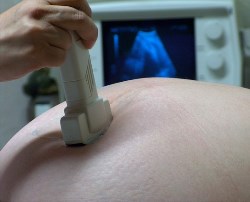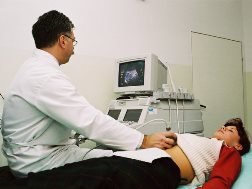How to Pick the Right Sonogram Tech School near Light Arkansas
 Since you have made a decision to obtain an ultrasound technician degree near Light AR, it’s time to start the process of choosing a college. First, you have to find the ideal program that will provide the appropriate education to become a qualified professional. And given that some states do require that sonographers be either licensed or certified, depending on where you will practice you may also need preparation to pass a licensing or certification exam. So it’s very important that you investigate each college so that you can assess and compare your choices. But just where does one begin? Most potential students will start by looking for schools that are within travelling distance of their homes and then by comparing tuition. Certainly cost and location need to be considered when arriving at a decision, but there are additional critical factors as well. For instance, if the ultrasound technician schools have earned accreditation or if they sponsor internships. These and additional qualifications will be discussed more in detail later in this post. But first, let’s discuss what a sonogram tech does and the credentials and online training programs that are available.
Since you have made a decision to obtain an ultrasound technician degree near Light AR, it’s time to start the process of choosing a college. First, you have to find the ideal program that will provide the appropriate education to become a qualified professional. And given that some states do require that sonographers be either licensed or certified, depending on where you will practice you may also need preparation to pass a licensing or certification exam. So it’s very important that you investigate each college so that you can assess and compare your choices. But just where does one begin? Most potential students will start by looking for schools that are within travelling distance of their homes and then by comparing tuition. Certainly cost and location need to be considered when arriving at a decision, but there are additional critical factors as well. For instance, if the ultrasound technician schools have earned accreditation or if they sponsor internships. These and additional qualifications will be discussed more in detail later in this post. But first, let’s discuss what a sonogram tech does and the credentials and online training programs that are available.
Click Here to Get Free Information on Ultrasound Technician Schools!
Ultrasound Tech Work Description
 There are multiple acceptable titles for ultrasound techs (technicians). They are also called sonogram techs, diagnostic medical sonographers (or just sonographers) and ultrasound technologists. Regardless of name, they all have the same primary job description, which is to carry out diagnostic ultrasound testing on patients. Even though a number of techs work as generalists there are specialties within the field, for instance in pediatrics and cardiology. Most work in Light AR hospitals, clinics, outpatient diagnostic imaging centers and even private practices. Typical daily job duties of an ultrasound technician may involve:
There are multiple acceptable titles for ultrasound techs (technicians). They are also called sonogram techs, diagnostic medical sonographers (or just sonographers) and ultrasound technologists. Regardless of name, they all have the same primary job description, which is to carry out diagnostic ultrasound testing on patients. Even though a number of techs work as generalists there are specialties within the field, for instance in pediatrics and cardiology. Most work in Light AR hospitals, clinics, outpatient diagnostic imaging centers and even private practices. Typical daily job duties of an ultrasound technician may involve:
- Preserving records of patient case histories and specifics of each procedure
- Counseling patients by explaining the procedures and answering questions
- Prepping the ultrasound machines for testing and then cleaning and re-calibrating them
- Moving patients to treatment rooms and making them comfortable
- Utilizing equipment while limiting patient exposure to sound waves
- Reviewing the results and identifying need for supplemental testing
Ultrasound techs must frequently evaluate the safety and performance of their equipment. They also are held to a high professional standard and code of conduct as medical practitioners. In order to sustain that degree of professionalism and remain current with medical knowledge, they are required to enroll in continuing education programs on a regular basis.
Ultrasound Technician Degree Programs Offered
 Ultrasound tech enrollees have the choice to earn either an Associate or a Bachelor’s Degree. An Associate Degree will usually require about 18 months to 2 years to complete depending on the program and class load. A Bachelor’s Degree will take longer at up to four years to complete. Another alternative for those who have previously received a college degree is a post graduate certificate program. If you have received a Bachelor’s Degree in any major or an Associate Degree in a related medical field, you can enroll in a certificate program that will require just 12 to 18 months to finish. Something to keep in mind is that almost all ultrasound technician programs do have a clinical training element as a portion of their course of study. It often may be satisfied by participating in an internship program which numerous schools set up with Light AR clinics and hospitals. After you have graduated from any of the certificate or degree programs, you will then have to fulfill the licensing or certification prerequisites in Arkansas or whichever state you elect to practice in.
Ultrasound tech enrollees have the choice to earn either an Associate or a Bachelor’s Degree. An Associate Degree will usually require about 18 months to 2 years to complete depending on the program and class load. A Bachelor’s Degree will take longer at up to four years to complete. Another alternative for those who have previously received a college degree is a post graduate certificate program. If you have received a Bachelor’s Degree in any major or an Associate Degree in a related medical field, you can enroll in a certificate program that will require just 12 to 18 months to finish. Something to keep in mind is that almost all ultrasound technician programs do have a clinical training element as a portion of their course of study. It often may be satisfied by participating in an internship program which numerous schools set up with Light AR clinics and hospitals. After you have graduated from any of the certificate or degree programs, you will then have to fulfill the licensing or certification prerequisites in Arkansas or whichever state you elect to practice in.
Online Sonographer Classes
 As earlier discussed, almost all ultrasound technician colleges have a practical requirement to their programs. So while you can obtain a degree or certificate online, a significant part of the training will be either held in an on campus lab or at an authorized off-campus facility. Practical training can often be fulfilled by means of an internship at a local Light AR hospital, outpatient clinic or family practice. But the balance of the classes and training can be attended online in your Light home. This is especially beneficial for those individuals that continue working while obtaining their degrees. Plus online colleges are often more affordable than traditional alternatives. Expenditures for study materials and commuting can be lessened as well. But just as with any sonographer program you are looking at, make sure that the online program you enroll in is accredited. Among the most highly respected accrediting organizations is the Commission on Accreditation of Allied Health Education Programs (CAAHEP). Accreditation is especially crucial for certification, licensing and finding employment (more on accreditation later). So if you are disciplined enough to attend classes outside of the classroom in the convenience of your own home, then online classes could be the right choice for you.
As earlier discussed, almost all ultrasound technician colleges have a practical requirement to their programs. So while you can obtain a degree or certificate online, a significant part of the training will be either held in an on campus lab or at an authorized off-campus facility. Practical training can often be fulfilled by means of an internship at a local Light AR hospital, outpatient clinic or family practice. But the balance of the classes and training can be attended online in your Light home. This is especially beneficial for those individuals that continue working while obtaining their degrees. Plus online colleges are often more affordable than traditional alternatives. Expenditures for study materials and commuting can be lessened as well. But just as with any sonographer program you are looking at, make sure that the online program you enroll in is accredited. Among the most highly respected accrediting organizations is the Commission on Accreditation of Allied Health Education Programs (CAAHEP). Accreditation is especially crucial for certification, licensing and finding employment (more on accreditation later). So if you are disciplined enough to attend classes outside of the classroom in the convenience of your own home, then online classes could be the right choice for you.
Subjects to Ask Sonography Programs
 After you have decided on which certificate or degree that you would like to earn, you can start the procedure of assessing and comparing sonogram tech schools. You may first want to decide whether you will access classes online or travel to a college campus in the Light AR area. Clearly location will be critical if you decide on the latter, and the price of tuition undoubtedly will be an important qualification as well. But there are other variables that you must also take into consideration, for instance if the colleges are accredited and if they offer internship programs. Therefore in order to complete your due diligence so that you can make your ultimate selection, below are several questions that you need ask each sonography program prior to making a decision.
After you have decided on which certificate or degree that you would like to earn, you can start the procedure of assessing and comparing sonogram tech schools. You may first want to decide whether you will access classes online or travel to a college campus in the Light AR area. Clearly location will be critical if you decide on the latter, and the price of tuition undoubtedly will be an important qualification as well. But there are other variables that you must also take into consideration, for instance if the colleges are accredited and if they offer internship programs. Therefore in order to complete your due diligence so that you can make your ultimate selection, below are several questions that you need ask each sonography program prior to making a decision.
Are the Sonogram Technician Schools Accredited? The majority of sonogram technician colleges have obtained some form of accreditation, whether regional or national. However, it’s still crucial to confirm that the program and school are accredited. Among the most highly regarded accrediting organizations in the field of sonography is the Joint Review Committee on Education in Diagnostic Medical Sonography (JRC-DMS). Programs earning accreditation from the JRC-DMS have gone through a rigorous examination of their instructors and course materials. If the college is online it may also receive accreditation from the Distance Education and Training Council, which targets online or distance education. All accrediting agencies should be acknowledged by the U.S. Department of Education or the Council on Higher Education Accreditation. Along with guaranteeing a quality education, accreditation will also assist in acquiring financial assistance and student loans, which are many times not available for non-accredited programs. Accreditation might also be a pre-requisite for certification and licensing as required. And a number of Light AR health facilities will only hire graduates of an accredited college for entry level jobs.
Are Internships Sponsored? Inquire if the sonogram technician colleges you are evaluating have partnerships with Light AR hospitals or clinics for internship programs. Not only are internships a great way to get practical experience in a clinical environment, they are additionally a way to fulfill the clinical training requirement for the majority of programs. As an ancillary benefit, they can assist students and graduates form professional connections in the Light healthcare community and help with job placement.
Is Job Placement Help available? You will most likely want to hit the ground running after graduation, but finding that initial job in a new profession can be challenging without support. Ask if the sonographer programs you are interviewing have job assistance programs and what their placement rates are. High and rapid placement rates are an excellent indication that the schools have large networks and good relationships with Arkansas healthcare employers. It also corroborates that their graduates are highly regarded and in demand.
Where is the Program Located? For a number of students, the school they choose will need to be within driving distance of their Light AR residence. Students who have decided to attend classes online obviously will not have to worry themselves with the location of the campus. However, the availability of local internships will be of importance. Something to keep in mind is that if you decide to enroll in a program that is out of state or even out of your local area, you may need to pay a higher tuition. State colleges usually charge higher tuitions for out of state residents. And community colleges generally charge a higher tuition for those students that don’t reside within their districts.
How Big are the Classes ? Unless you are the type of student that prefers to sit far in the rear of the classroom or get lost in the crowd, you will likely prefer a small class size. Small classes allow for more individual participation and personalized instruction. Ask the schools you are researching what the typical student to teacher ratio is for their classes. If practical you may prefer to monitor one or more classes before making your final decision. This will also give you a chance to talk with a few of the students and instructors to get their perspectives regarding the sonogram tech program also.
Does the Program Accommodate your Schedule? And finally you must confirm that the sonographer school you ultimately choose can provide the class schedule you need. This is especially important if you opt to continue working while you attend classes. If you need to schedule night or weekend classes in the Light AR area, confirm that they are offered. If you can only enroll on a part-time basis, find out if that is an alternative and how many courses or credit hours you would have to carry. Also, learn what the protocol is for making up any classes that you might miss as a result of work, illness or family obligations.
Ultrasound Tech Training Online Light Arkansas
 Enrolling in the ideal ultrasound technician degree or certificate program is an important first step to starting a fulfilling new career furnishing diagnostic services to patients. Ultrasound technician colleges require that you have earned a high school diploma or equivalent. Apart from satisfying academic standards, you must be in at least reasonably good physical condition, able to stand for prolonged time frames and able to routinely lift weights of 50 pounds or more, as is it typically necessary to position patients and maneuver heavy machinery. Additional desirable skills include technical proficiency, the ability to stay levelheaded when faced with an anxious or angry patient and the ability to converse in a clear and compassionate manner. You originally came to this website due to an interest in Ultrasound Tech Training Online and wanting more information on Medical Sonographer School. However, as we have addressed in this article, there are multiple questions that you should ask each college you are looking at. This holds true whether you enroll in an online degree or travel to the school campus to attend classes. And by asking the proper questions so that you can assess each school, you will be able to narrow down your alternatives until you are left with the ideal school for your education. And with the right training, discipline and motivation to succeed, you can realize your goal to work as an ultrasound tech in Light AR.
Enrolling in the ideal ultrasound technician degree or certificate program is an important first step to starting a fulfilling new career furnishing diagnostic services to patients. Ultrasound technician colleges require that you have earned a high school diploma or equivalent. Apart from satisfying academic standards, you must be in at least reasonably good physical condition, able to stand for prolonged time frames and able to routinely lift weights of 50 pounds or more, as is it typically necessary to position patients and maneuver heavy machinery. Additional desirable skills include technical proficiency, the ability to stay levelheaded when faced with an anxious or angry patient and the ability to converse in a clear and compassionate manner. You originally came to this website due to an interest in Ultrasound Tech Training Online and wanting more information on Medical Sonographer School. However, as we have addressed in this article, there are multiple questions that you should ask each college you are looking at. This holds true whether you enroll in an online degree or travel to the school campus to attend classes. And by asking the proper questions so that you can assess each school, you will be able to narrow down your alternatives until you are left with the ideal school for your education. And with the right training, discipline and motivation to succeed, you can realize your goal to work as an ultrasound tech in Light AR.
More Ultrasound Locations in Arkansas
Light
Light is electromagnetic radiation within a certain portion of the electromagnetic spectrum. The word usually refers to visible light, which is the visible spectrum that is visible to the human eye and is responsible for the sense of sight.[1] Visible light is usually defined as having wavelengths in the range of 400–700 nanometres (nm), or 4.00 × 10−7 to 7.00 × 10−7 m, between the infrared (with longer wavelengths) and the ultraviolet (with shorter wavelengths).[2][3] This wavelength means a frequency range of roughly 430–750 terahertz (THz).
The main source of light on Earth is the Sun. Sunlight provides the energy that green plants use to create sugars mostly in the form of starches, which release energy into the living things that digest them. This process of photosynthesis provides virtually all the energy used by living things. Historically, another important source of light for humans has been fire, from ancient campfires to modern kerosene lamps. With the development of electric lights and power systems, electric lighting has effectively replaced firelight. Some species of animals generate their own light, a process called bioluminescence. For example, fireflies use light to locate mates, and vampire squids use it to hide themselves from prey.
The primary properties of visible light are intensity, propagation direction, frequency or wavelength spectrum, and polarization, while its speed in a vacuum, 299,792,458 metres per second, is one of the fundamental constants of nature. Visible light, as with all types of electromagnetic radiation (EMR), is experimentally found to always move at this speed in a vacuum.[4]
